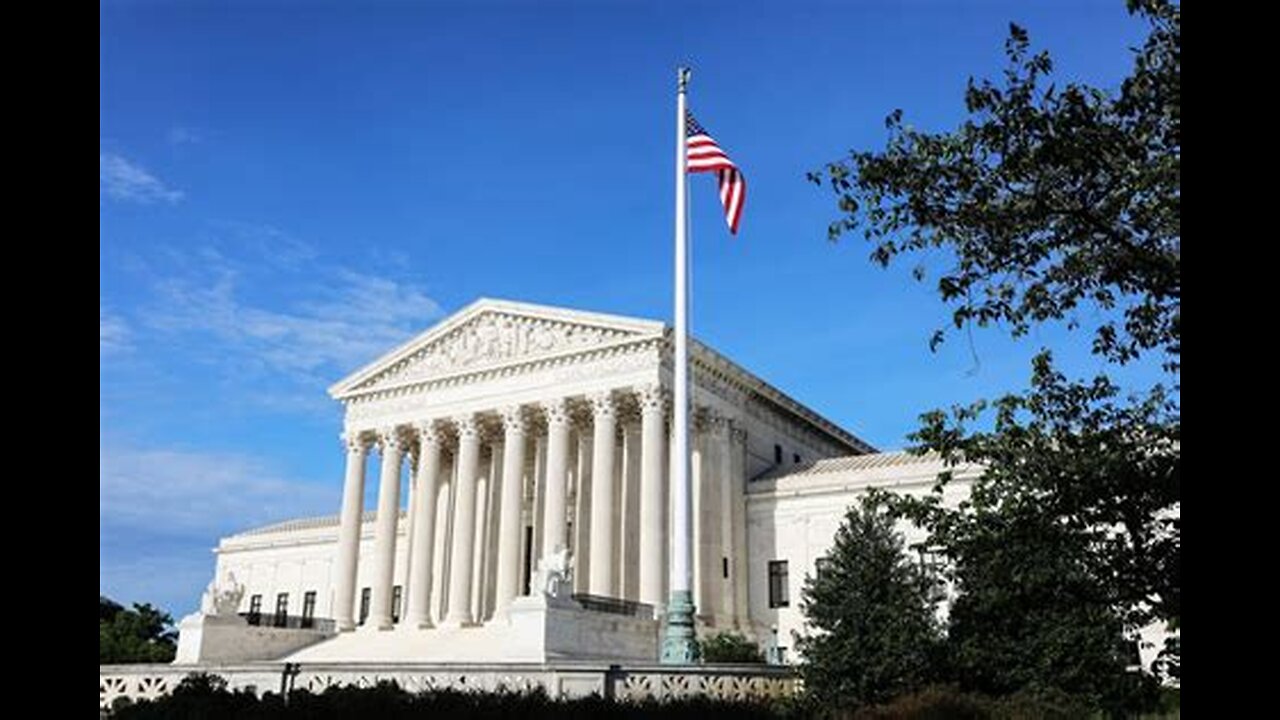Premium Only Content

For a Friend: SEC v. JARKESY Thoughts and more.
Some powerful US Supreme Court Case Law...
Marbury v. Madison, 5 US 137, (1803)
"The Constitution of these United States is the supreme law of the land. Any law that is repugnant to the Constitution is null and void of law."
SECURITIES AND EXCHANGE COMMISSION v. JARKESY, JR., 603 U. S. (June 27, 2024)
“I write separately to highlight that other constitutional provisions reinforce the correctness of the Court’s course. The Seventh Amendment’s jury-trial right does not work alone. It operates together with Article III and the Due Process Clause of the Fifth Amendment to limit how the government may go about depriving an individual of life, liberty, or property. The Seventh Amendment guarantees the right to trial by jury. Article III entitles individuals to an independent judge who will preside over that trial. And due process promises any trial will be held in accord with time-honored principles. Taken together, all three provisions vindicate the Constitution’s promise of a “fair trial in a fair tribunal.” In re Murchison, 349 U. S. 133, 136 (1955).”
That is why the Constitution built “high walls and clear distinctions” to safeguard individual liberty. Plaut v. Spendthrift Farm, Inc., 514 U. S. 211, 239 (1995). Ones that ensure even the least popular among us has an independent judge and a jury of his peers resolve his case under procedures designed to ensure a fair trial in a fair forum. In reaffirming all this today, the Court hardly leaves the SEC without ample powers and recourse. The agency is free to pursue all of its charges against Mr. Jarkesy. And it is free to pursue them exactly as it had always done until 2010: In a court, before a judge, and with a jury. With these observations, I am pleased to concur.
Axon Enterprise, Inc. v. FTC, 143 S. Ct. 890 (2023) Nos. 21-86 and 21-1239 (April 14, 2023),
"Cases involving ... deprivations or transfers of life, liberty, or property constitute a core of cases that ... MUST be resolved by Article III courts—not executive adjudicators dressed up as courts".
Cooper v. Aaron, 358 U.S. 1, 78 S. Ct. 1401 (1958)
Note: Any judge who does not comply with his oath to the Constitution of the United States wars against that Constitution and engages in acts in violation of the supreme law of the land. The judge is engaged in acts of treason. The U.S. Supreme Court has stated that "no state legislator or executive or judicial officer can war against the Constitution without violating his undertaking to support it". See also In Re Sawyer, 124 U.S. 200 (188); U.S. v. Will, 449 U.S. 200, 216, 101 S. Ct. 471, 66 L. Ed. 2d 392, 406 (1980); Cohens v. Virginia, 19 U.S. (6 Wheat) 264, 404, 5 L. Ed 257 (1821).
-
 11:18
11:18
Humble on Rumble
3 months agoDEFAULT JUDGEMENT of $725,781,907,128 is entered per the Federal Rules of Civil Procedure Rule 55.
1512 -
 10:52
10:52
Evenout
1 hour ago $0.13 earnedTIME TRAVELLING ON THE ESCALATOR TWIN PRANK!
1.35K1 -
 5:43:44
5:43:44
Scammer Payback
6 hours agoCalling Scammers Live
60.3K9 -
 LIVE
LIVE
Barry Cunningham
3 hours agoWATCH LIVE: James O'Keefe, Gen. Michael Flynn,, Byron Donalds, PBD & More At AmericaFest!
1,002 watching -
 2:00:10
2:00:10
Twins Pod
5 hours agoYouth Pastor Confronts People Possessed By DEMONS! | Twins Pod - Episode 44 - Drew Hernandez
35.2K6 -
 1:37:40
1:37:40
The Quartering
6 hours agoShutdown Watch, Biden Dementia Bombshell, Madison Shooter Had An Accomplice & Much More!
73.7K32 -
 26:58
26:58
Stephen Gardner
4 hours ago🔥The Trump-Musk fight EXPLAINED, HUGE White House COVER-UP EXPOSED, Congress Tried To SCREW America!
46.3K31 -
 LIVE
LIVE
Right Side Broadcasting Network
8 days agoLIVE: TPUSA's America Fest Conference: Day Two - 12/20/24
4,606 watching -
 1:51:08
1:51:08
Tucker Carlson
7 hours agoJenner Furst: Secret Chinese Biotech Programs, and the Documentary That Could Put Dr. Fauci in Jail
160K120 -
 9:39
9:39
Film Threat
8 hours agoNOSFERATU | Film Threat Reviews
45.2K1